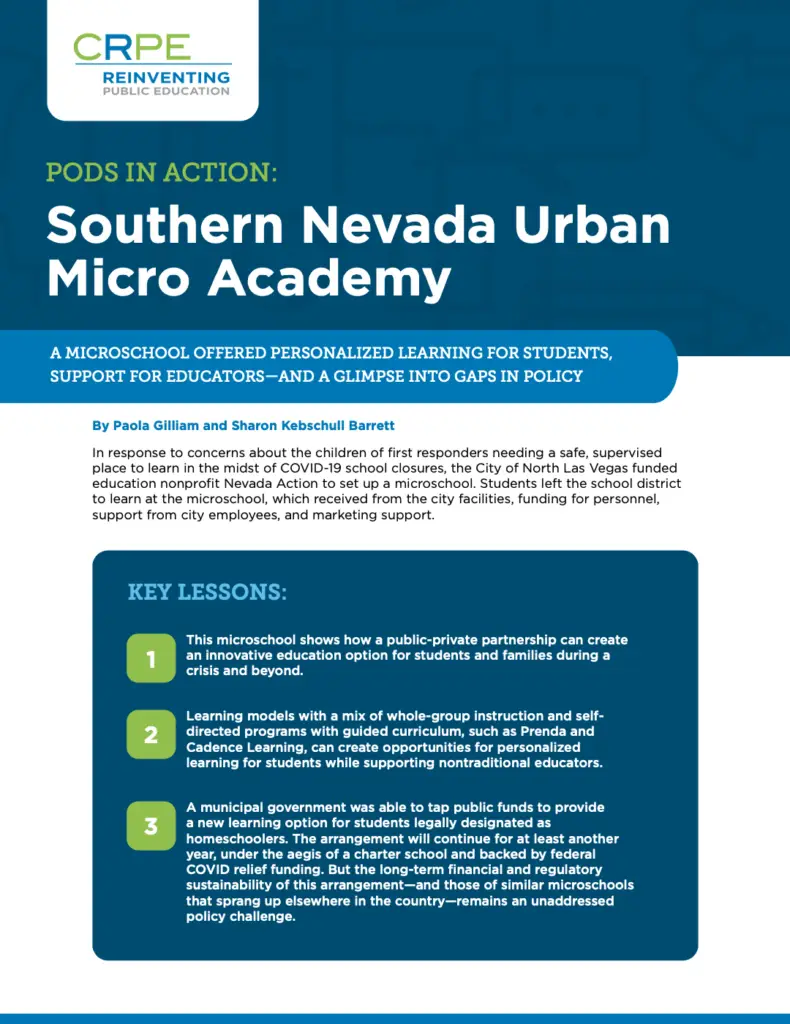Case Study: A microschool offered personalized learning for students, support for educators—and a glimpse into gaps in policy
In response to concerns about the children of first responders needing a safe, supervised place to learn in the midst of COVID-19 school closures, the City of North Las Vegas funded education nonprofit Nevada Action to set up a microschool. Students left the school district to learn at the microschool, which received from the city facilities, funding for personnel, support from city employees, and marketing support.
Key Lessons
- This microschool shows how a public-private partnership can create an innovative education option for students and families during a crisis and beyond.
- Learning models with a mix of whole-group instruction and self- directed programs with guided curriculum, such as Prenda and Cadence Learning, can create opportunities for personalized learning for students while supporting nontraditional educators.
- A municipal government was able to tap public funds to provide a new learning option for students legally designated as homeschoolers. The arrangement will continue for at least another year, under the aegis of a charter school and backed by federal COVID relief funding. But the long-term financial and regulatory sustainability of this arrangement—and those of similar microschools that sprang up elsewhere in the country—remains an unaddressed policy challenge.




